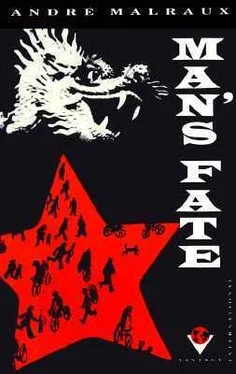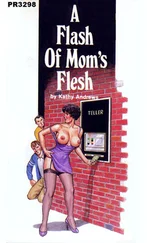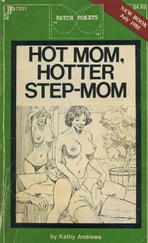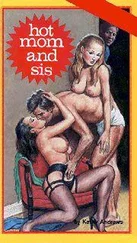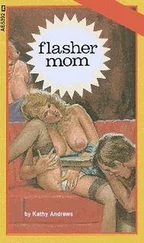Those who were directing the attack were assembled in a dark passage.
“You couldn't send scouts, could you!”
The leader of the ch’on, a tall shaved Chinaman, whose sleeves were too short, watched his approaching shadow, slowly raised his eyelids, resigned:
“I had someone telephone,” was all he said. Then added: “Now we’re waiting for an armored truck.” “How are the other sections getting along?”
“We've taken half the stations.”
“Not more?”
“That’s pretty good for a start.”
All that distant gunfiring came from their men who were converging towards the North Station.
Ch'en was panting, as though he had just come out of the water into a strong wind. He leaned against the wall, the angle of which protected them all, getting back his wind by degrees, thinking of the prisoner whose ropes he had cut. “I should have left the fellow alone. Why did I go and cut the rope? It couldn't make any difference.” But he knew that he could not have done otherwise, that even now he would not react differently to that man with his leg cut off, helplessly struggling. Because of his wound, he thought of Tang Yen Ta. What a fool he had been all last night, all this morning! Nothing was easier than to kil.
In the station, the debris was still burning, the wounded were still shrieking before the approaching flames; their repeated, constant clamor reverberated in this low passage, rendered extraordinarily near by the remoteness of the detonations, of the sirens, of all the sounds of war lost in the dismal air. A distant metallic rumble became audible, drew nearer, submerged those other sounds: the truck was arriving. It had been converted into an armored truck overnight, very hastily: the plates were inadequately joined. The brakes were applied, the clatter ceased, and the cries could be heard again.
Ch’en, who was the only one to have entered the station, explained the situation to the chief of the rescue squad. He was a former Whampoa cadet; Ch'en would have preferred one of Katov's groups to this squad of young bourgeois. If it was true that he did not succeed in feeling an absolute bond between himself and his men, even before those dead comrades huddled up in the middle of the street, he knew that at aU times he hated the Chinese bourgeoisie; the proletariat was at least the form of his hope.
The officer knew his business. “The truck’s no use,” he said, “it hasn’t even a top. Ail they have to do is throw a grenade inside to blow up the whole business; but I’ve brought some grenades too.” Those of Ch’en’s men who carried them were in the guard-room-dead? — and the second group had not been able to get hold of any.
“Let’s try from above.”
“Agreed,” said Ch’en.
The officer looked at him with irritation: he had not asked for his opinion; but he said nothing. Both of them — he, a soldier, in spite of his civilian clothes, with his bristling hair, his close-trimmed mustache, his blouse gathered under his revolver-belt; and Ch'en, squat and blue-examined the station. To the right of the door the smoke from the flames which were crawling ever closer to the bodies of their wounded comrades issued forth with a mechanical regularity, like their cries, whose constancy would have seemed childish but for their agonizing tone. To the left, nothing. The windows of the second story were veiled in smoke. From time to time an assailant still fired at one of the windows, and bits of wreckage sprinkled down to increase the dusty pile of plaster, splinters, sticks, in which pieces of glass glistened in spite of the dull light. Now the station was firing only when one of the insurgents left his hiding-place.
“How are the other sections doing?” Ch’en asked again.
“Ahnost all the stations have been taken. The main station, by surprise, at one-thirty. We seized eight hundred guns there. We can already send reenforcements against those who resist: you’re the third squad we have helped. They are not getting any more reenforcements; we have already blocked the barracks, the South Station, the arsenal. But we have to get through here: we need all the men we have for the attack. And there still be the armored train.”
The idea of the two hundred groups engaged in the same activity as his own both exalted and disturbed Ch’en. In spite of the gunfiring which the listless ^ind brought from the entire city, violence gave him the sensation of solitary activity.
A man pulied a bicycle from inside the truck, and left.
Ch’en recognized as he was getting on: Ma, one of the principal agitators. He was going to make a report of the situation to the Military Committee. A typographer, who had devoted his whole life, since the age of twelve, to creating Unions of printshop workers everywhere, with the hope of organizing all Chinese typographers; tried, condemned to death, a fugitive, still organizing. Shouts of joy: the men had recognized him at the same moment as Ch’en, and were acclaiming him. He looked at them. The world they were preparing condemned him-Ch’en-as much as did that of their enemies. What would he do in the factory of the future that lay hidden behind their blue blouses?
The officer distributed grenades, and ten men went up along the roofs to take position on the station-roof. They were going to give the police a dose of their own medicine, throw the explosives in through the windows: these commanded the street but not the roof, and only one was protected by a screen. The insurgents advanced from roof to roof, elongated silhouettes against the sky. The station kept up a steady fire. As if the dying alone had divined this approach, their cries suddenly changed, became moans. Now they could hardly be heard; they were the stifled cries of half-mutes. The silhouettes reached the ridge of the steep station-roof, slowly crawled do^; it was harder for Ch’en to make them out now that they no longer stood out against the sky. A guttural shriek, like that of a woman in the agony of childbirth, cut across the groans, which continued like an echo, and then died away.
Despite the general commotion the sudden cessation of cries gave the impression of a sinister silence: had the flames reached the wounded? Ch’en and the officer looked at each other, shut their eyes in order to hear better. Each, upon reopening his eyes, met the silent look of the other.
One of the men, clinging to an ornament of the cornice, raised his free over the street, threw his grenade towards the window of the second story just below him. Too low: it exploded on the sidewalk. He threw a second one: it landed in the room where the wounded were. Yells burst from the window that had been hit; no longer the same cries, but the piercing shrieks of men in the convulsions of death, the outbursts of inexhaustible suffering. The man threw his third grenade and again missed the window.
He was one of the men who had come in the truck. He had deftly thro^ himself back, through fear of the explosion. He was bending over again, his lifted arm holding a fourth grenade. Behind him one of Ch’en’s men was crawling down. The arm was never lowered: he was suddenly swept off the roof, and a moment later a violent explosion resounded on the sidewalk; through the smoke, a splash of blood a yard wide appeared on the' wall. The smoke lifted: the waH was spattered with blood and shreds of flesh. The second insurgent, losing his hold and sliding do^ the roof with his full weight, had knocked the first man off. Both had fallen on their o^ grenades, from which they had pulled the pins.
From the other side of the roof, at the left, men of the two groups-Kuomintang bourgeois and Communist workers-were cautiously approaching. When the faH occurred they had halted: now they were beginning again to crawl down. The February repression had been attended by too many to^rtures to allow the insurrection to fail through lack of resolute men. From the right, other men were approaching. “Make a chain!” Ch’en shouted from below. Insurgents close to the station re- ioo peated the order. The men held one another by the hand, the top one taking a strong hold with his left arm on a solid roof-ornament. The throwing of the grenades was resumed. The besieged could not fire back.
Читать дальше
